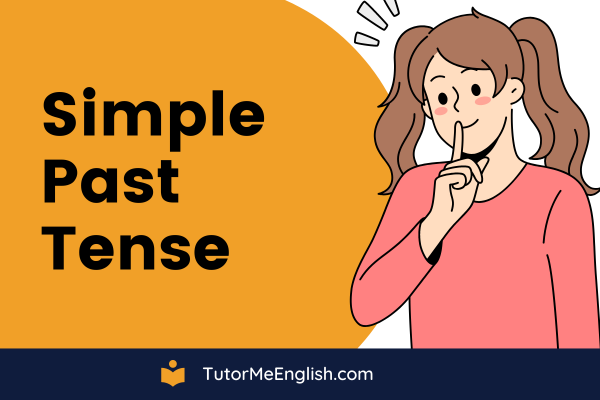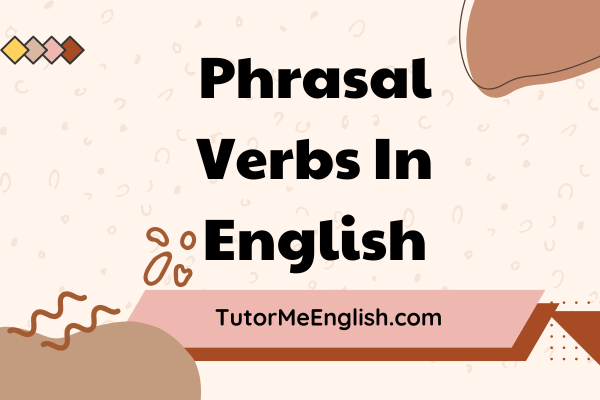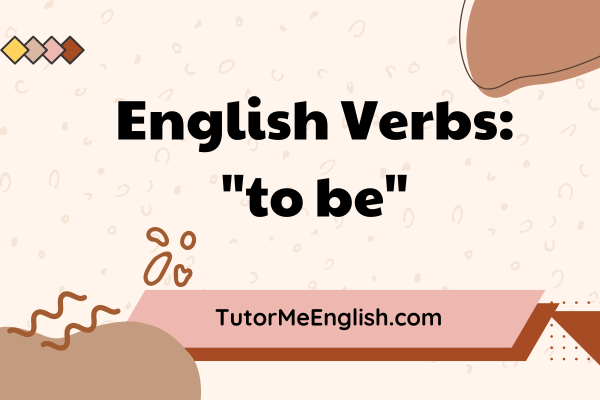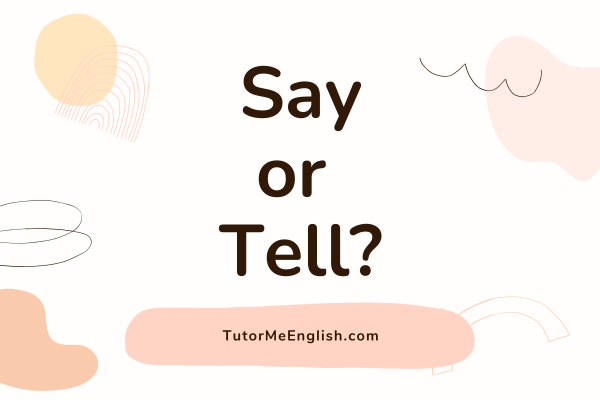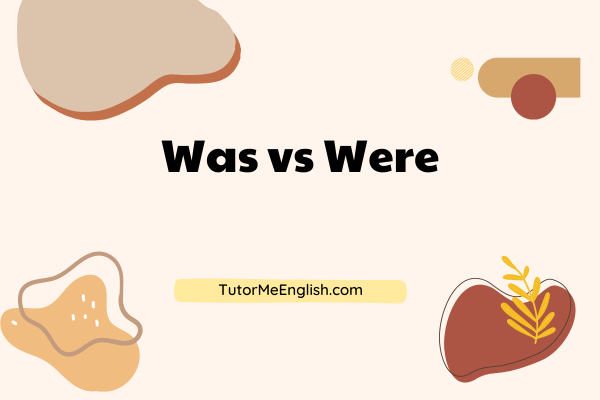50 of the most common irregular verbs in English
Irregular verbs in English can be tricky to master because they don’t follow any rules, but they are an essential part of effective communication. Learning these verbs will help you express yourself more clearly and stand out as a proficient English speaker. The English language has at least 200 irregular verbs and in this article, we’ll explore 50 of the most common irregular verbs in English.
Please note, you will not be able to memorize all 200+ irregular verbs all at once. That’s why we recommend memorizing 10 a day. Try spending 10 to 15 minutes each day memorizing the verbs and in time, you’ll have a grasp of them all. Our favorite time to do this is during your commute while you’re in traffic.
Let’s get into today’s 50 common irregular verbs in English.
1. Be
This verb is used to indicate identity or existence. It has several forms, including “am,” “is,” “are,” “was,” and “were.”
Past tense: was/were
Example sentences
- I am 30 years old.
- He is my husband.
- You are an English learner.
- She was a teacher.
- They were in Paris for their honeymoon.
2. Have
This verb is used to indicate possession or ownership and has several forms, including “has,” “had,” and “having.”
Past tense: has/had
Example sentences
- We have a project to complete.
- He has a red car in his garage.
- We had a class on Monday.
- They are having a meeting in the board room.
3. Do
This verb is used to indicate an action or activity and has several forms, including “does,” “did,” and “doing.”
Past tense: did
Example sentences
- She does nails for a living.
- Did you call me today?
- Do you know what time it is?
- What are you doing this Saturday?
4. Say
This verb is used to express words or thoughts and has several forms, including “says,” “said,” and “saying.”
Past tense: said
Example sentences
- Did you say you speak English?
- He says he wants to get married.
- She said she wanted to move to another country.
- I can’t hear what the speaker is saying.
5. Go
This verb is used to indicate movement or direction and has several forms, including “goes,” “went,” and “going.”
Past tense: went
Example sentences
- Do you want to go to the movies with me?
- Tracy goes to the supermarket on Thursdays.
- For their first date, they went to the theater.
- I think she’s going home now.
6. Get
This verb is used to indicate obtaining or acquiring something and has several forms, including “gets,” “got,” and “getting.”
Past tense: got
Example sentences
- Did you get my message yesterday?
- It gets really cold in December.
- Lisa got a car for her birthday.
- We will be getting a raise next month.
7. Make
This verb is used to indicate creating or producing and has several forms, including “makes,” “made,” and “making.”
Past tense: made
Example sentences
- I make breakfast at 8:00 a.m. every day.
- The cat makes funny noises when she is petted.
- Jose made his wife’s wedding dress all by himself.
- She has been making money online for 2 years now.
8. Know
This verb is used to indicate knowledge or awareness and has several forms, including “knows,” “knew,” and “knowing.”
Past tense: knew
Example sentences
- Do you know what time it is?
- She knows more than she’s saying.
- We all knew they would get married eventually.
- Knowing the grammar rules will help you speak better English.
9. Think
This verb is used to indicate thoughts or opinions and has several forms, including “thinks,” “thought,” and “thinking.”
Past tense: though
Example sentences
- What do you think we should do about the leak?
- She thinks she’s better than everyone on the team.
- I thought you were going to the party this tonight.
- I’ve been thinking about what you said yesterday.
10. Take
This verb is used to indicate the act of receiving or accepting and has several forms, including “takes,” “took,” and “taking.”
Past tense: took
Example sentences
- Please remember to take your lunch to work tomorrow.
- Layla takes the bus to work every day.
- I took your advice and started reading more books in English.
- George is taking Tracey to the park.
11. See
This verb is used to indicate vision or perception and has several forms, including “sees,” “saw,” “seen”, and “seeing.”
Past tense: saw
Example sentences
- What do you see in the room?
- The curious cat sees a butterfly in the garden.
- They saw the shooting star streak across the sky.
- I’ve seen this movie before.
- Could you please tell us what you’re seeing in the room?
12. Come
This verb is used to indicate movement or arrival and has several forms, including “comes,” “came,” and “coming.”
Past tense: came
Example sentences
- I will come to your party if I’m available that day.
- the train comes to this station every morning at 8:00 A.M.
- she came home late after a long day at work.
- the much-anticipated festival is coming soon and everyone is excited about it.
13. Bet
This verb is used to indicate taking a chance. It usually involves risking money for the chance to win a prize but can be used in other contexts. The different forms are “bets”, “bet”, “betting”
Past tense: bet
Example sentences
- I bet he will win the race he’s been training for.
- She often bets on horse races because she enjoys the thrill of gambling.
- He bet his friend $20 that he could finish the puzzle first.
- The group of friends was betting on who would score the first goal in the soccer match.
14. Win
This verb is used to indicate being victorious or successful in a competition or conflict. It has different forms: “wins”, “won”, “won”, “winning”.
Past tense: won
Example sentences
- She managed to win first place in the singing competition.
- He usually wins every match he plays because of his impressive skills.
- after they won the championship, they celebrated with a big party.
- She’s been winning over everyone in the office with her charming personality.
15. Find
This verb is used to indicate discovering or locating and has several forms, including “finds,” “found,” and “finding.”
Past tense: found
Example sentences
- During their hike, they managed to find a hidden waterfall in the dense forest.
- He often finds interesting articles to read in the morning newspaper.
- Yesterday she found her missing keys under the couch.
- He is always finding new ways to improve the company.
16. Give
This verb is used to indicate providing or donating and has several forms, including “gives,” “gave,” and “giving.”
Past tense: gave
Example sentences
- He gives his sister a gift on her birthday every year.
- The company gave its employees a bonus for their hard work.
- Giving back to the community is important for social responsibility.
- Are you asking me to give you some advice?
17. Tell
This verb is used to indicate conveying information or instructions and has several forms, including “tells,” “told,” and “telling.”
Past tense: told
Example sentences
- She tells funny stories to her friends during lunch breaks.
- Last night, she told me about her exciting trip to the mountains.
- Stop interrupting; I’m telling a story!
- I don’t know what to tell you about Trisha.
18. Wake
This verb is used to indicate coming out of sleep into a state of consciousness and has several forms, including “wakes,” “woke,” “woken,” and “waking.”
Past tense: woke
Example sentences
- Unless I go to bed now, I won’t wake up early tomorrow.
- She wakes up early every morning to go for a jog.
- Yesterday, he woke to the sound of birds chirping outside his window.
- The noise from the construction site has woken the entire neighborhood.
- I love waking up to the smell of coffee in the morning.
19. Understand
This verb means to know the meaning of something and has different forms, including “understands,” and “understood.”
Past tense: understood.
Example sentences
- I don’t understand what you mean.
- Sarah understands the importance of regular exercise for maintaining good health.
- He finally understood the instructions after reading them multiple times.
- The team showed a great understanding of each other’s strengths during the match.
20. Tear
This verb means to pull or rip something apart by force and has several forms, including “tears,” “tore,” “torn,” and “tearing.”
Past tense: tore
Example sentences
- Be careful not to tear the paper while wrapping the gift.
- She tears up whenever she watches heartwarming videos.
- She accidentally tore her favorite dress last week.
- The map was torn and difficult to read.
- The puppy was busy tearing up an old magazine.
21. Throw
This verb means to propel something through the air and has several forms, including “throws,” “threw,” “thrown,” and “throwing.”
Past tense: thrown
Example sentences
- Can you throw the ball to me, please?
- The pitcher throws the baseball with incredible speed.
- Last week, he threw a surprise party for his best friend.
- The paper airplane was thrown from the rooftop and flew across the street.
- They were caught throwing rocks into the pond.
22. Teach
This verb is used to indicate passing on knowledge or instructing someone on how to do something. It has several forms, including “teaches,” “taught,” and “teaching.”
Past tense: taught
Example sentences
- I love to teach English to foreign students.
- She teaches math at the local high school.
- He taught me how to play the guitar when I was a teenager.
- Teaching young children requires patience and creativity.
23. Feel
This verb is used to indicate emotions or sensations and has several forms, including “feels,” “felt,” and “feeling.”
Past tense: felt
Example sentences
- He can feel the soft sand beneath his feet at the beach.
- She feels a sense of accomplishment after completing a challenging task.
- When she saw the beautiful sunset, she felt overwhelmed with emotion.
- He couldn’t shake the feeling of excitement before his first day at a new job.
24. Become
This verb is used to indicate a transformation or change and has several forms, including “becomes,” “became,” and “becoming.”
Past tense: became
Example sentences
- The caterpillar will soon become a beautiful butterfly.
- When it rains, the ground becomes muddy.
- Last year, she became the president of the student council.
- Studying different cultures is becoming more important in today’s interconnected world.
25. Leave
This verb is used to indicate departure or abandonment and has several forms, including “leaves,” “left,” and “leaving.”
Past tense: left
Example sentences
- They will leave for their vacation tomorrow morning.
- He always leaves early to avoid traffic.
- They have already left for the airport.
- She is considering leaving her job to pursue her passion.
26. Put
This verb is used to indicate placing or positioning and has several forms, including “puts,” “put,” and “putting.”
Past tense: put
Example sentences
- She puts a lot of effort into her studies.
- Yesterday, I put the books back on the shelf.
- He’s been putting a lot of time and effort into his art project.
27. Mean
This verb is used to indicate significance or intention and has several forms, including “means,” “meant,” and “meaning.”
Past tense: meant
Example sentences
- What do you mean by that statement?
- He means well, even if he sometimes comes across as rude.
- She meant to call you yesterday, but she got busy with work.
- I’ve been meaning to go to the hairdresser but I’ve been busy with work.
28. Keep
This verb is used to indicate retention or possession and has several forms, including “keeps,” “kept,” and “keeping.”
Past tense: kept
Example sentences
- I like to keep my workspace tidy and organized.
- He keeps a spare key hidden under the doormat.
- They have kept the family heirloom for generations.
- Keeping a positive attitude can make a significant difference in difficult situations.
29. Let
This verb is used to indicate permission or allowing and has several forms, including “lets,” “let,” and “letting.”
Past tense: let
Example sentences
- She always lets her little brother play with her toys.
- Please let me know if you need any assistance.
- I appreciate you letting me use your computer to finish my assignment.
30. Begin
This verb is used to indicate the start of something and has several forms, including “begins,” “began,” and “beginning.”
Past tense: began
Example sentences
- Let’s begin the meeting with a quick introduction.
- The show begins at 8 PM sharp.
- Last year, they began construction on the new bridge.
- He is currently beginning his career in the IT industry.
31. Cut
This verb means to use a sharp tool to create an opening or incision in something. It has several forms, including “cuts,” and “cutting.”
Past tense: cut
Example sentences
- Yesterday, he cut his finger while slicing a tomato.
- The chef cuts the meat into thin slices.
- She is currently cutting vegetables to make a salad.
32. Swim
This verb means to move one’s body through water by using one’s limbs or other bodily movements and has several forms, including “swims,” “swam,” and “swimming.”
Past tense: swam
Example sentences
- I love to swim in the ocean during the summer.
- The little duckling swims alongside its mother in the pond.
- She swam across the river to reach the other side.
- The children are having fun swimming in the pool.
33. Stick
Usually “stick to”. This verb means to adhere to something or to become fixed in one position. It has other forms too, including “sticks,” “stuck,” and “sticking”.
Past tense: stuck
Example sentences
- We can stick the broken pieces back together with glue.
- The gum always sticks to the bottom of his shoes.
- Yesterday, I accidentally stuck my finger with a needle.
- The magnet is sticking to the refrigerator door.
34. Spin
This verb means to turn or cause to revolve quickly and has several forms, including “spins,” “spun,” and “spinning.”
Past tense: spun
Example sentences
- She loves to spin around in circles until she gets dizzy.
- The ceiling fan spins to circulate the air in the room.
- The spider spun an intricate web to catch its prey.
- The washing machine is spinning the clothes to remove excess water.
35. Sweat
This verb is used to indicate moisture produced by the skin to cool the body and has several forms, including “sweats,” and “sweating.”
Past tense: sweat
Example sentences
- The intense heat made us sweat even in the shade.
- She sweats a lot when she is nervous or anxious.
- Despite the air conditioning, the room is still hot, and I’m sweating like crazy!
36. Sell
This verb means to give or hand over something in exchange for money. It has several forms, including “sells,” “sold,” and “selling.”
Past tense: sold
- I want to sell my old laptop and buy a new one.
- The company sells its products in multiple countries.
- Last week, she sold her car to a friend.
- The new smartphone is selling like hotcakes due to its advanced features.
Example sentences
37. Hear
This verb is used to indicate perception or awareness of sound and has several forms, including “hears,” “heard,” and “hearing.”
Past tense: heard
Example sentences
- Can you hear the birds singing in the morning?
- The dog hears a car approaching and starts barking.
- They have heard all about your recent achievements.
- I enjoy hearing stories from my grandparents about their youth.
38. Send
This verb means to cause to go from one place to another. It has several forms, including “sends,” “sent,” and “sending.”
Past tense: sent
Example sentences
- I will send you an email with the details of the meeting.
- He always sends a text message to wish her good morning.
- Last week, I sent a package to my sister for her birthday.
- The team is considering sending a representative to the conference.
39. Run
This verb is used to indicate movement or exercise and has several forms, including “runs,” “ran,” and “running.”
Past tense: ran
Example sentences
- I like to run in the park every morning for exercise.
- She runs five kilometers every day to stay fit.
- They ran a successful fundraising campaign last month.
- She enjoys running on the beach during sunset.
40. Choose
This verb means to make a selection from available options and has several forms, including “chooses,” “chose,” and “chosen,” “choosing.”
Past tense: chose
Example sentences
- You can choose your favorite color from the options available.
- He always chooses the healthiest options on the menu.
- They chose to stay at home instead of going to the party.
- The team has chosen their captain for the upcoming match.
- We are currently choosing a new design for the website.
41. Buy
This verb is used to indicate obtaining something in exchange for payment and has several forms, including “buys,” “bought,” and “buying.”
Past tense: bought
Example sentences
- They decided to buy a new car for their family.
- She always buys fresh flowers for her living room.
- Yesterday, I bought a new book from the bookstore.
- Buying online has become more convenient for many people.
42. Can
This verb is used to indicate the ability to and has several forms, including “can,” “could,” and “could.”
Past tense: could
Example sentences
- She can speak three languages fluently.
- When I was younger, I could run faster than I can now.
- Can you please pass me the salt?
43. Bring
This verb is used to indicate the act of carrying or transporting and has several forms, including “brings,” “brought,” and “bringing.”
Past tense: brought
Example sentences
- Can you bring the snacks for the party?
- She always brings a positive attitude to work.
- They have brought all the necessary equipment for the camping trip.
- Bringing people together is the main goal of the community event.
44. Break
This verb means to separate into pieces and has several forms, including “breaks,” “broke,” and “broken.”
Past tense: broke
Example sentences
- Be careful not to break the delicate glass vase.
- I need to take a break from studying; my brain feels tired.
- He often breaks his pencils while writing because of the pressure.
- She accidentally broke her favorite mug yesterday.
- The toy has been broken for a while and needs to be repaired.
45. Write
This verb is used to indicate the act of composing or recording and has several forms, including “writes,” “wrote,” and “writing.”
Past tense: wrote
Example sentences
- I love to write stories in my free time.
- She writes articles for a popular magazine.
- She wrote a beautiful poem for her best friend’s birthday.
- Writing helps her express her thoughts and emotions.
46. Blow
This verb means to create currents of air and has several forms, including “blows,” “blew,” and “blown.”
Past tense: blew
Example sentences
- Please don’t blow out the candles yet.
- The hairdryer blows warm air to dry wet hair.
- Yesterday, a strong gust of wind blew down the old tree.
- My cover has been blown because you keep making noises.
47. Sit
This verb is used to indicate positioning oneself in a seated position and has several forms, including “sits,” “sat,” and “sitting.”
Past tense: sat
Example sentences
- I like to sit by the window and read a book.
- She always sits at the front of the classroom.
- She sat with her friends at the cafeteria during lunch.
- He is currently sitting on the couch, watching TV.
48. Stand
This verb is used to indicate positioning oneself in an upright position and has several forms, including “stands,” “stood,” and “standing.”
Past tense: stood
Example sentences
- Please stand up when the national anthem is played.
- He always stands at the back of the line.
- Yesterday, I stood in a long queue to buy concert tickets.
- They are currently standing in front of the famous landmark for a photo.
49. Lose
This verb is used to indicate the act of misplacing or failing to win and has several forms, including “loses,” “lost,” and “losing.”
Past tense: lost
Example sentences
- If you are not careful, you will lose your phone.
- She often loses her keys and spends a lot of time searching for them.
- Yesterday, I lost my wallet on the way home.
- I have been losing weight by following a strict diet and exercise routine.
50. Pay
This verb is used to indicate the act of providing compensation or remuneration and has several forms, including “pays,” “paid,” and “paying.”
Past tense: paid
Example sentences
- Don’t forget to pay your electricity bill by the due date.
- The company pays its employees a competitive salary.
- Last month, she paid all her credit card bills in full.
- I am currently paying off my student loans.
In conclusion
Mastering irregular verbs is essential for effective communication in English. By learning these verbs and their many forms, you can express yourself more clearly and eloquently. So, take the time to study these verbs and unleash your creative potential as an English speaker.

